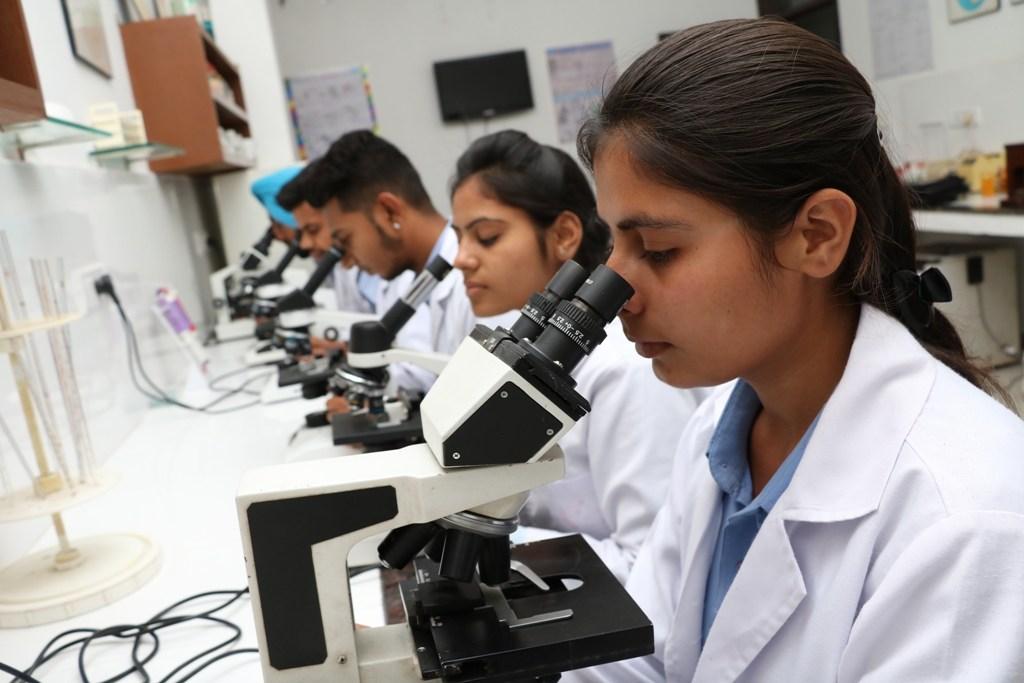
Course Name:Bachelor of Medical Laboratory Technology (B.M.L.T)
Course Group
Paramedical Degree Course
Duration
4 years & 6 Month Intern
Eligibility
10+2 (With Bio)
Year of Establishment
2024
The Bachelor of Medical Laboratory Technology (BMLT) is an undergraduate degree program designed to equip students with the knowledge and technical skills required to perform diagnostic laboratory tests. This course prepares students for roles as medical laboratory technologists who analyze biological samples to detect diseases, monitor health conditions, and assist in treatment planning. BMLT is vital for the early detection, diagnosis, and management of diseases.
Key Features of the Program:
- Curriculum Highlights:
- Biochemistry, Pathology, Microbiology, Hematology, Immunology, Clinical Pathology, and Genetics.
- Laboratory techniques and diagnostic testing methods.
- Practical clinical training in hospital labs and diagnostic centers.
Benefits of Pursuing a Bachelor of Medical Laboratory Technology
- In-Depth Technical Skills:
- Gain expertise in laboratory procedures like blood tests, microbiological analysis, and diagnostic imaging support.
- High Demand in the Healthcare Sector:
- Medical laboratory technologists are essential members of diagnostic teams, and their roles are in high demand globally.
- Diverse Career Opportunities:
- Work in diagnostic laboratories, hospitals, research centers, blood banks, pharmaceutical companies, and biotechnology firms.
- Pathway to Specializations:
- BMLT graduates can specialize in advanced fields such as Hematology, Microbiology, Pathology, Genetics, and Immunology.
- Hands-On Practical Learning:
- The program emphasizes laboratory practicals, ensuring students gain real-world experience in diagnostic testing.
- Global Employability:
- Medical Laboratory Technologists are sought after internationally, offering opportunities for overseas employment.
- Financially Rewarding Career Path:
- With competitive pay, BMLT graduates enjoy financial stability and career growth opportunities.
- Supports Accurate Diagnosis & Treatment:
- Laboratory analysis allows early diagnosis and monitoring of diseases, enabling effective treatment planning.
- Research and Innovation Opportunities:
- Engage in groundbreaking research in genetics, diagnostics, and emerging medical technologies.
- Contribution to Public Health:
- Work directly with disease surveillance, outbreak management, and public health initiatives.
